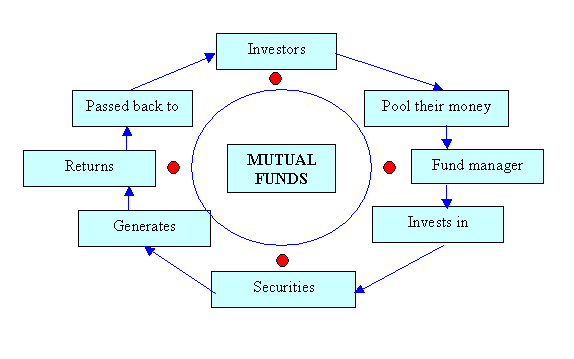What are Mutual Funds
Post on: 16 Март, 2015 No Comment

Identification
Mutual funds are simply groups of stocks, packaged together as a single investment by mutual fund managers and/or financial companies. The label mutual fund comes from the practice of pooling the money of many investors to buy a group of different stocks (sometimes hundreds or thousands of stocks) that would be unaffordable if an investor had to buy each stock himself.
Types
The most important distinction among mutual funds is managed versus unmanaged. In the case of a managed fund, a fund manager decides (based on his own opinion and research) which stocks will make up the fund. If the fund manager makes good decisions, the fund may have high returns and outperform the market as a whole. However, if the manager chooses poorly, the fund will underperform. Also, managed funds often charge high fees in order to pay these managers, which can undercut returns.
Types
Conversely, the stocks in an unmanaged fund are not chosen by a manager, but instead are assembled to mirror the makeup of a major market index, like the S&P 500. These funds are also known as index funds. Because an index fund simply tracks a specified sector of the market, it will never outperform or underperform that market sector. Due to the elimination of human input, index funds are considered less exciting than managed funds (no chance of fantastic returns in a year where the market was down) but also less risky (no chance of lackluster returns in a great market year). Index funds usually have lower fees and expenses than their managed counterparts, which helps to bolster returns.
Considerations
Resources
More Like This
How to Understand Mutual Funds
Index Fund Vs. Managed Fund
Are Mutual Funds Guaranteed?
You May Also Like
Investing in mutual funds continues to gain popularity among a range of investors, especially families and professionals not associated with the financial.
Unmanaged or index funds simply track a specific. Mutual fund companies have recently begun offering funds of funds, which are a.
The average mutual fund return for a 10-year period is used by many investors to chart the. Mutual funds have high.
To understand the role of a mutual fund manager, you need to understand what a mutual fund is. A mutual fund is.
A mutual fund is a key product that is designed to accumulate money for the investor. Invest wisely into something that will.
You can use actively managed mutual funds to try to time the market and. Or you can choose the passive approach.
ETF Vs. Index Funds. unmanaged index funds and. Index Fund Vs. Investors often face a choice between index funds and.
Hedge funds are a risky form of investing best used by market-savvy investors. They have the ability to produce high rates of.
Mutual funds provide low-level involvement with high-level expertise for those who want a set it and forget it approach to investing. Investors.
Index funds do not use a portfolio manager. Rather, they are unmanaged funds that seek to continuously perform identically to the underlying.
As a mutual fund investor, you have many different choices at your disposal. You can invest in equity mutual funds and profit.
Index funds are mutual funds constructed to emulate a market or industry benchmark. unmanaged funds that track underlying benchmarks were introduced.
Mutual Fund Performance. An index is an unmanaged basket of stocks that are representative of a given market or style of.














